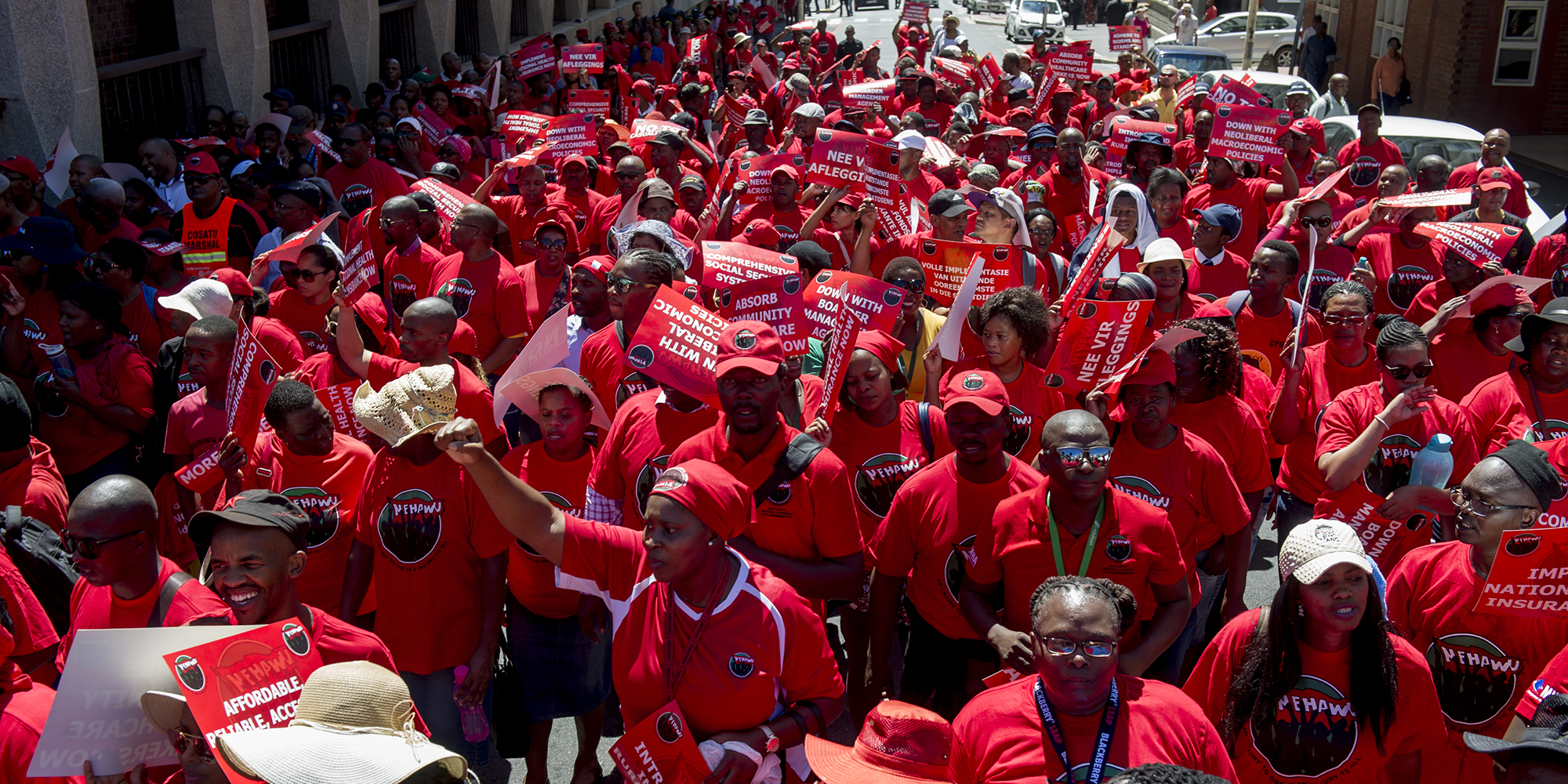Labour relations are improving in Parliament as it’s close to securing a multi-year pay deal with a trade union without the threat of its workers downing tools and disrupting the state’s legislative arm.
Meanwhile, labour relations in other areas of the state are strained as trade unions representing public servants are still clashing with the government over a one-year pay deal for 2025.
Without a pay deal being reached soon, public servants — including teachers, nurses, doctors, police and prison officers, administrators and others — might embark on a strike, bringing service delivery to a standstill.
Read more in Daily Maverick: Public sector pay talks showdown looms as government struggles to hold the line
The deal at Parliament will see the pay of its entry-level and lowest-paid workers — such as cleaners, waitstaff and cooks — double over the next three years to align with Parliament’s existing pay regime and scales.
In 2017, Parliament started a process to insource functions from the private sector, mainly cleaning, which resulted in the pay of cleaners not aligning with Parliament’s remuneration regime.
Parliament spokesperson Moloto Mothapo said the insourcing of workers in entry-level positions — referred to as the X-band — resulted in them earning 70% less than the lowest-paid categories of other parliamentary staff. Other entry-level positions at Parliament are classified under the A-band, meaning that the House has two pay scales for the same employment level.
“The historical placement of cleaning staff into a separate X-band category created an inequitable situation where Parliament operated with two different entry-level structures — the lower X-band specifically for cleaning staff and the higher A-band for all other entry-level employees. This transition corrects this disparity by moving cleaning staff into the A-band, which has always been Parliament’s standard entry-level category,” said Mothapo.
In other words, the three-year pay deal between Parliament and the trade union, the National Education, Health and Allied Workers’ Union (Nehawu), is designed to correct the discrepancies in Parliament’s pay scale.
“The alignment eliminates an unjust dual system and ensures all entry-level employees, regardless of their role, fall under the same remuneration structure. This change reflects Parliament’s commitment to workplace equality and fair labour practices,” said Mothapo.
The proposed three-year pay deal
A multiyear or three-year pay deal is on the cards between Parliament and trade union Nehawu, which represents most entry-level and lowest-paid workers. In the first leg of the deal, Parliament workers will receive a 10% increase, which will be implemented in December 2024. This will be followed by a 40% increase in April 2025 and a final 50% hike in 2026.
Nehawu chairperson in Parliament Sthembiso Tembe told Daily Maverick that it was sympathetic to the Parliament’s financial constraints. This is why the pay deal will be staggered over three years instead of it being effected immediately. The pay deal is not yet final as Nehawu has not signed it. “We are still going through the agreement to confirm if it’s in line with what we agreed on,” said Tembe.
Another trade union source close to negotiations said Parliament negotiators have played open cards about its financial situation and the pay adjustments it can afford, which helped negotiations to go smoothly and without workers even considering a labour strike.
According to Parliament’s 2022/23 annual report, 653 workers were classified under the X-band as of 1 April 2023. Workers in this band earn more than R140,000 annually, and the three-year pay deal with trade unions will double this amount by 2026. This will increase Parliament’s total remuneration cost, estimated to be R1.2-billion during fiscal year 2024/25.
Parliament’s budget and amendments of in-year funding allocations are determined independently of National Treasury’s budget process. Daily Maverick understands that Parliament is set to fund any increase/adjustments in the pay of workers from its existing budget, set at R2.77-billion during the current fiscal year. This is in line with Treasury’s directive for government departments and other arms of state to fund pay adjustments within allocated budgets, instead of Treasury allocating new money to fund pay deals.
Parliament also plans to offer workers performance bonuses, which will also add pressure to its remuneration bill. The performance bonuses will be over and above the pay increases. Parliament’s Mothapo has defended the proposed bonuses, which he said have already been budgeted for and are designed to recognise and reward “employee excellence”. “The performance bonus programme is a standard practice across the public sector and reflects Parliament’s alignment with established public service recognition frameworks,” said Mothapo.
In other spheres of the state, public servants automatically receive a 1.5% adjustment in their pay every year, known as “pay progression”. A “pay progression” is ordinarily awarded to public servants for their years of service and performance. It is factored in every year as part of a remuneration package. DM





